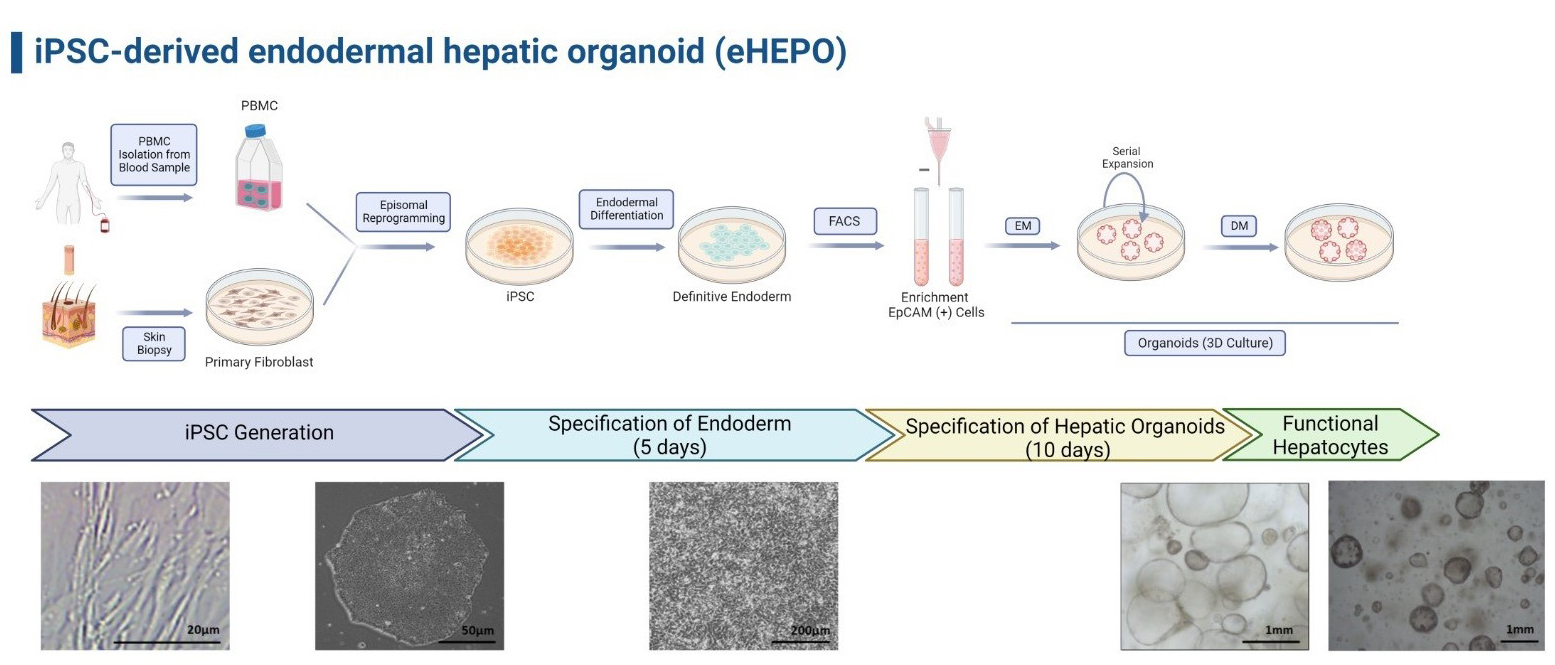Here, dermal fibroblasts and PBMC cells were used to generate donor-specific human iPSCs via non-integrating episomal reprogramming. Then, iPSCs were differentiated towards endoderm germ layer under chemically defined conditions. Upon differentiation FACS‐enriched an intermediate endodermal EpCAM+ cell population were used to establish functional liver organoid cultures. As a critical improvement in our method, endoderm was first induced by the combined action of growth factors and freshly isolated EpCAM+ cells at day 5 were cultured in matrigel within Expansion Medium (EM) medium. Following cultivation endoderm derived hepatic organoids (eHEPOs) were obtained within 8-10 days and could be cultured long-term stable (>16 months with passage number 50) and resilient to freeze/thaw cycles for biobanking. Our culture system with differentiation medium (DM) produced functional organoids including biliary ductal structure and polarized hepatocytes. During the culture period, the proliferation and differentiation capacity of hepatic organoids are preserved, allowing generation of large amounts of hepatocytes in a rapid manner. The eHEPOs exhibited properties of mature hepatocyte functions such as LDL uptake, albumin secretion, cytochrome P450 metabolism, glycogen storage as well as gene expression key markers (Akbari S., 2019).





